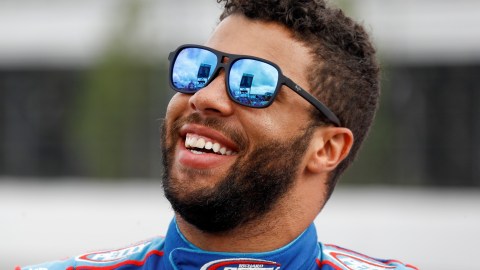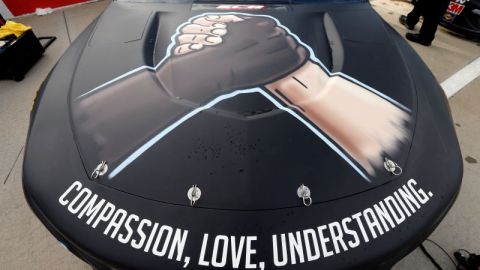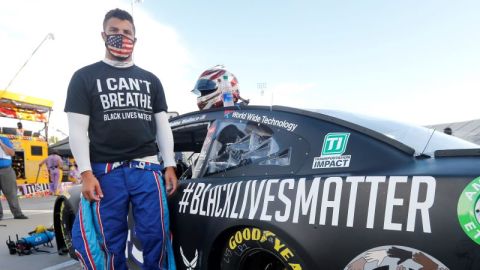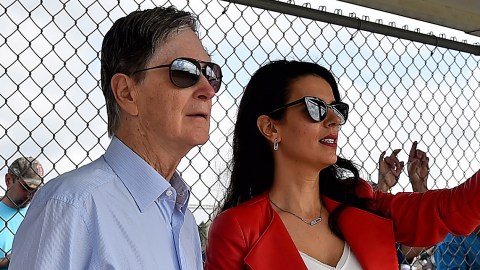 To say John Stockton makes a public appearance once in a blue moon would be inaccurate, because not even blue moons are as elusive as Stockton. Getting the former Utah Jazz point guard to come out of hiding, even for one brief night, requires the most special circumstances — like, for instance, a former rival going into the hall of fame and requesting his presence.
To say John Stockton makes a public appearance once in a blue moon would be inaccurate, because not even blue moons are as elusive as Stockton. Getting the former Utah Jazz point guard to come out of hiding, even for one brief night, requires the most special circumstances — like, for instance, a former rival going into the hall of fame and requesting his presence.
So Stockton stood, looking uncomfortable and sheepish on stage in Springfield, Mass., while Gary Payton dedicated a portion of his induction speech at the Naismith Memorial Basketball Hall of Fame to a player he spent 13 years battling. Some observers found it odd that Payton, the ultimate trash-talker, would ask Stockton, the stone-faced choirboy, to accompany him into immortality. Payton even addressed the minor hubbub set off last week when he said Stockton was tougher to guard than Michael Jordan.
“First of all, it’s my opinion,” Payton said. “So that’s the way it’s gonna go.”
While it may have seemed odd to see Stockton flanking Payton, in actuality it was the least Payton could do. Payton’s reputation as a lockdown defender, his fame as “The Glove” and therefore his entire career came as a result of playing in a golden age of point guards. Those players essentially made him by giving him a chance to show just how furious a defender he could be.
Kyrie Irving‘s fast ascension, Stephen Curry‘s emergence, Tony Parker‘s stellar postseason and the stark impact injuries to Derrick Rose, Russell Westbrook, Rajon Rondo and John Wall had on their teams last season inspired fans to marvel at the NBA’s current crop of point guards. Damian Lillard seems primed to be one of the next great ones, Deron Williams and Ty Lawson got unfairly lost in the mix and Chris Paul, as usual, was arguably the most valuable player this side of LeBron James.
Never before has the game had so many excellent point guards vying for attention, and at least a couple will inevitably be snubbed from All-Star and national teams. But the early to mid-1990s came close, making Payton and Stockton’s ability to rise to the forefront all the more impressive.
From 1990 to about 1995, choosing point guards for the All-Star game, particularly in the Western Conference, was an impossible task. Somebody was always getting left out. Magic Johnson‘s retirement in 1991 eased the voters’ pressure a bit, but guys like Tim Hardaway, Fat Lever, Kevin Johnson or Rod Strickland were constantly jostling for one of the reserve positions. Payton was right there with them — only Stockton, who made every All-Star game from 1989 to 1997, could be penciled into the roster every year. Five of the 12 members of the 1991 West team were point guards: Magic and Kevin Johnson, Stockton, Hardaway and Terry Porter.
Back East, there was Kenny Anderson, Isiah Thomas and then two Hardaways after Tim moved to Miami and Anfernee Hardaway arrived in 1993. Alvin Robertson, who was and continues to be criminally underrated, made his fourth and final All-Star team in 1991.
Contemporaries like that made Payton’s admission that he was a relatively late bloomer understandable, but not entirely true. Yes, Payton took a while to push into the upper stratosphere at his position, but not for lack of opportunities. He started all 82 games as a rookie, followed by starting 9,216 of the 9,222 games he played in over the next 14 years. It wasn’t that Payton — along with Terrell Brandon, his rival at Oregon, who didn’t make an All-Star team until 1996 — wasn’t any good. There just wasn’t any room for him at the top.
And therein lies how Payton made his mark. If he couldn’t join them, he would stop them, and thus beat them. People started wondering why Kevin Johnson and Tim Hardaway consistently had subpar performances against the Sonics. If this Payton kid could slow down the likes of them, fans reasoned, he must be pretty darn good. A few years later and a perennial All-Star himself, Payton even matched up against Jordan in the 1996 NBA Finals, giving away two inches and 20 pounds.
Yet through all that competition, in an era when a point guard with something to prove could never take a night off, Stockton still stood out. To Payton, Stockton was the one colleague who brought the same effort every game, albeit with a very different style and personality.
“He’s a guy every kid should watch,” Payton said. “He did it the same way every night.”
Stockton’s presence therefore shouldn’t have been all that surprising. It was necessary. A great defender is nothing without great players to stop, and as the greatest Payton says he ever faced, Stockton needed to be in Springfield on Sunday, representing every member of a standout era for a position that now appears to be returning to its former glory.
Have a question for Ben Watanabe? Send it to him via Twitter at @BenjeeBallgame or send it here.



